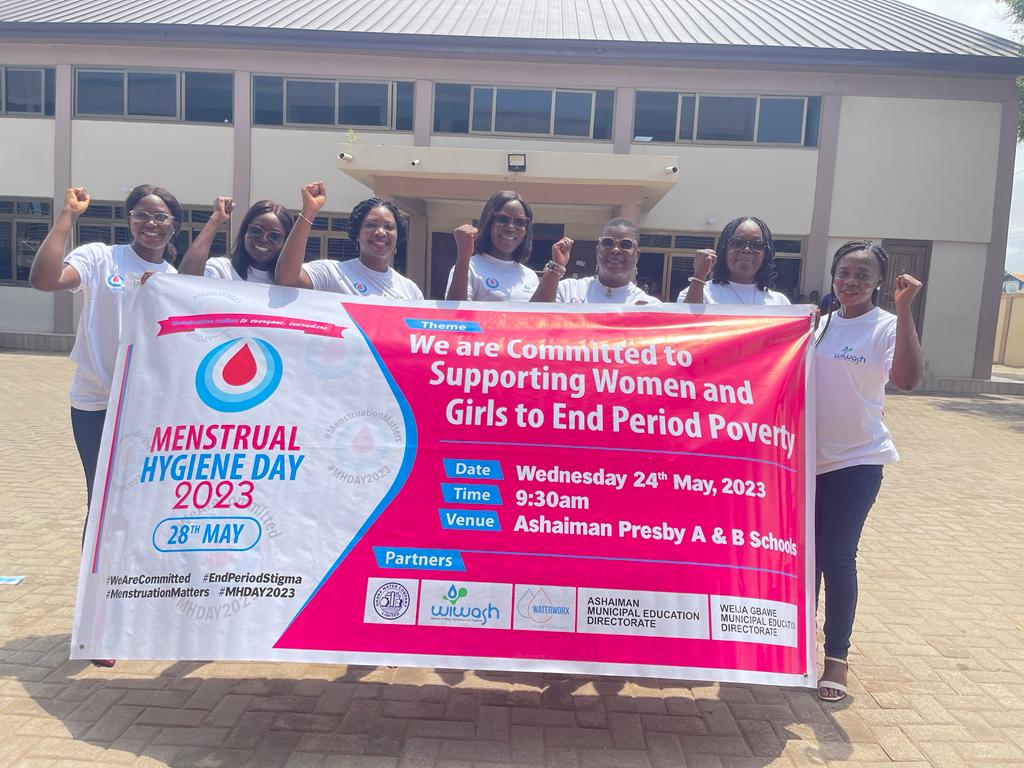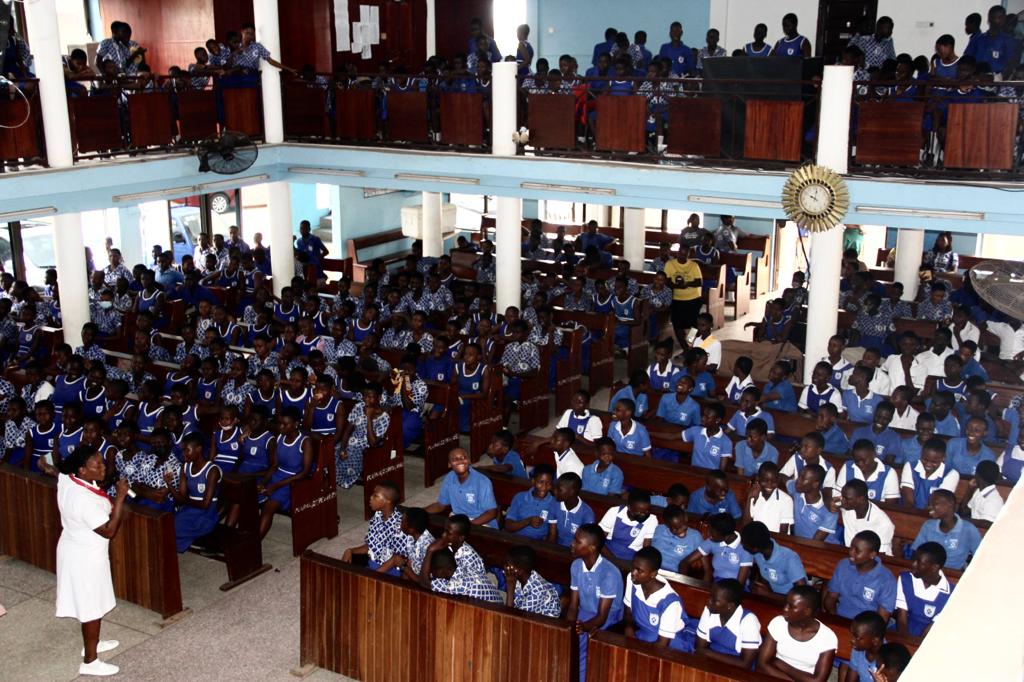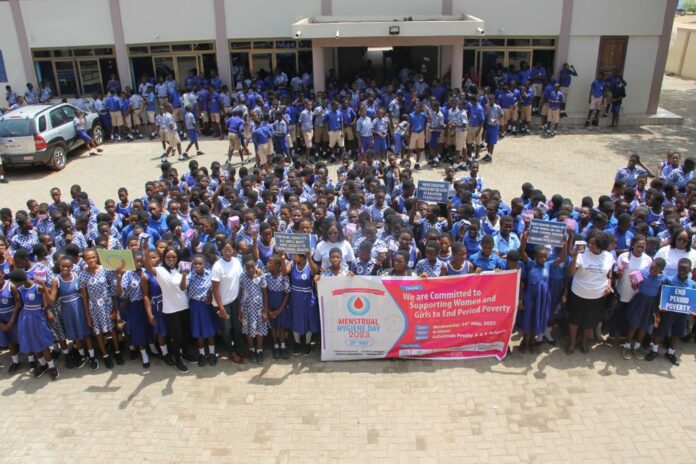The Network of Professional Women in Water, Sanitation and Hygiene (WiWASH), a not-for-profit group in Ghana, has called on all stakeholders, especially the government, to support women and girls to end period poverty.
WiWASH made the call when its members donated sanitary pads and other menstrual hygiene management products to over 300 girls at the Presbyterian A & B Schools in Ashaiman on Wednesday, May 24 during an event to commemorate Menstrual Hygiene Day 2023.
Speaking at the event, Secretary to the Group Solace Akomeah explained period poverty as the lack of access to menstrual products, menstrual education, menstrual hygiene facilities, proper menstrual waste management or a combination of all.
According to Mrs. Akomeah, a World Bank Report cited by BMC Women’s Health in 2021, noted that period poverty affects an estimated 500 million women and girls globally.
The WiWASH Secretary intimated that people who experience period poverty are unable to purchase the menstrual products they need and, in many cases, this means that they cannot go to school or work or otherwise participate fully in activities.
She also said that girls in developing countries miss up to five days of school per month when they menstruate, all due to period poverty.
The statistics in Ghana, according to Mrs. Akomeah, are even worst as about 95% of girls in rural areas are said to miss school during their periods, (2018 report by Sustainable Development Focus a Ghana-based NGO)
“If our girls will continue to miss school for several days in a month because of menstruation, will it ever be possible for us to achieve Sustainable Development Goal 4 which seeks to ensure inclusive and equitable quality education for all?” Mrs. Akomeah wondered.
Mrs. Solace Akomeah believes that every Ghanaian has a role to play to make menstrual products accessible to women and girls in need.
She called on individuals, teachers, advocacy groups and the government of Ghana especially, to act positively to end period poverty.
WiWASH’s Secretary said that girls consider disposable sanitary pads a necessity to preserve hygiene, self-confidence, and dignity but the pads are costly as they are subject to 20% import tax in Ghana.
“WiWASH is therefore calling on the government to remove the tax on sanitary products or reduce it drastically to help end period poverty,” Mrs. Akomeah urged.


Other dignitaries at the event included the Ashaiman Municipal Director of Education, Head Teachers of the School, the Ashaiman Municipal Coordinator for School Health, Madam Pascaline Aborhor, a Public Health Nurse, and Maame Ohenewaa Gyimah, a young WASH Ambassador for the Ashaiman Municipality.
While the dignitaries took turns to give pieces of advice to the girls, Nurse Pascaline provided education on menstrual health and hygiene and urged the boys to learn about menstruation and support girls when they menstruate.


